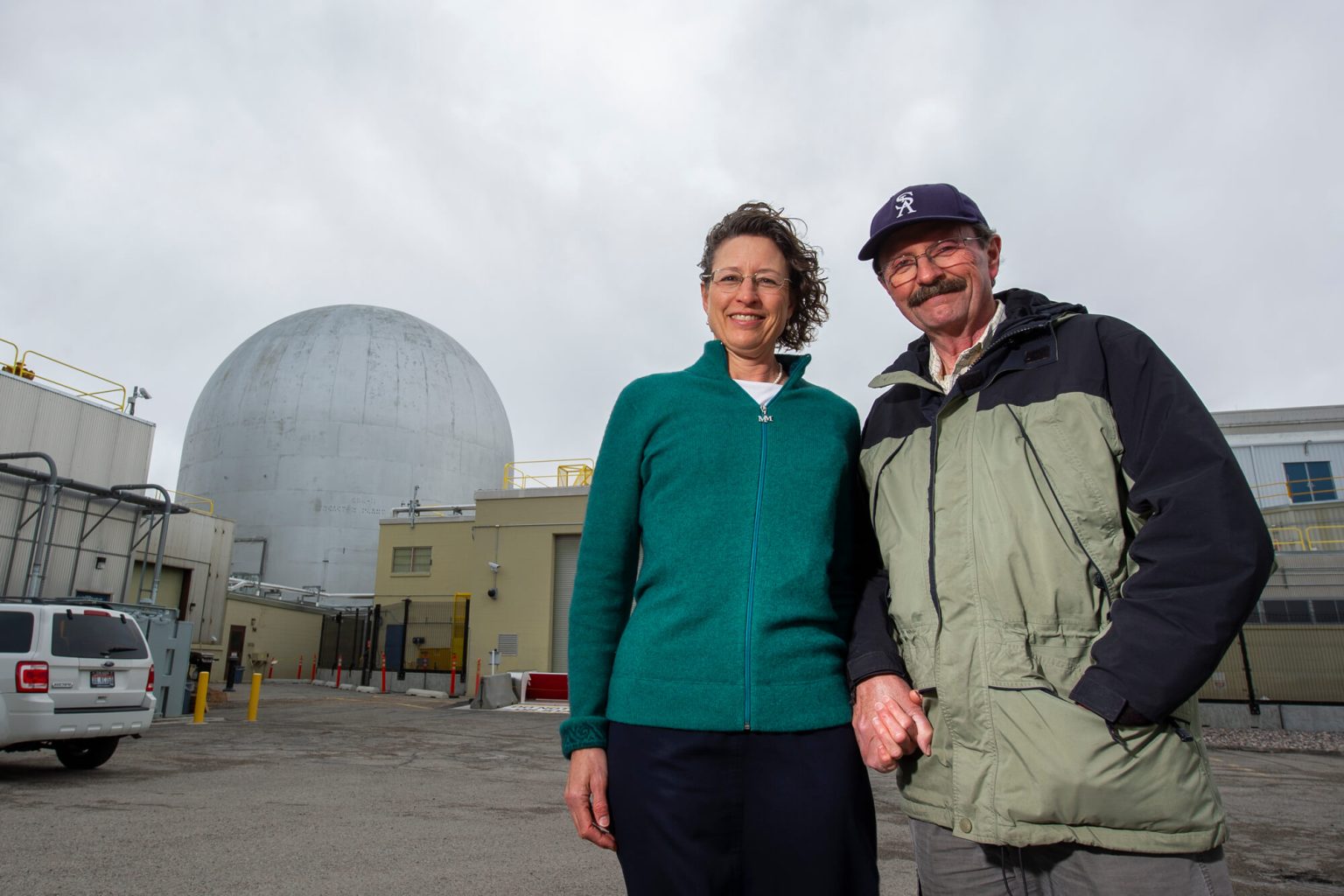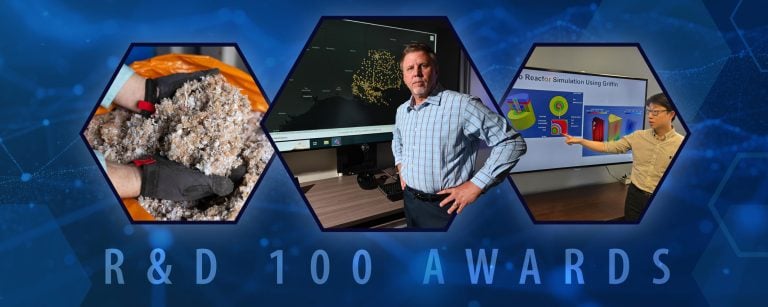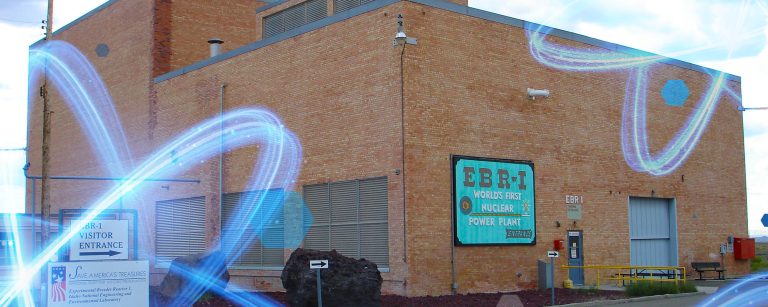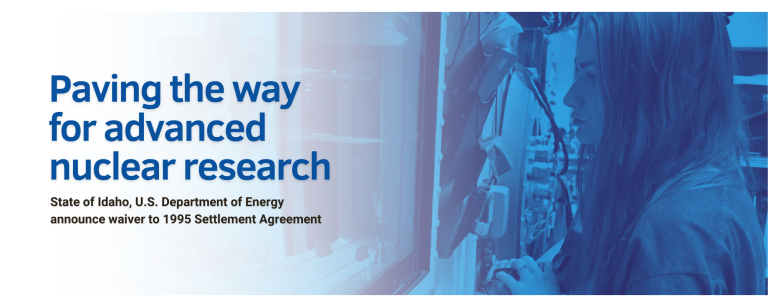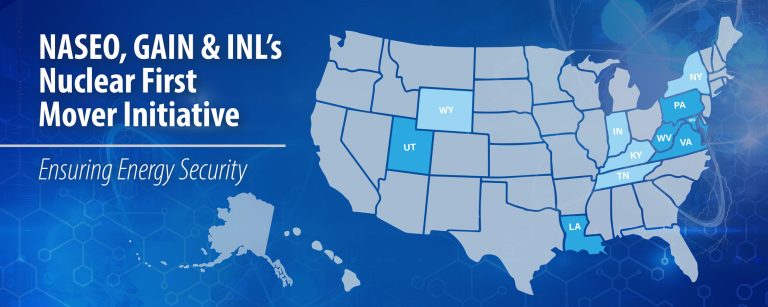When Susan Davis was young, she asked her father what he did for a living, and he told her that “he boils water.” It’s not an inaccurate snapshot of Vice Adm. George Davis’ extensive and impressive career, although it might have been just a bit of an understatement.
Adm. Davis spent 33 years in the Navy, 25 of them associated with its nuclear power program. For 20 years afterward, he worked in the operations, maintenance, and safety reviews of commercial nuclear plants and provided oversight of nuclear activity for several nuclear industry activities.
He qualified for the Navy’s nuclear power program in 1963 in West Milton, New York. In 1970, he was ordered to the A1W reactor prototype at the Naval Reactors Facility (NRF) in Idaho to train for assignment as a reactor officer for the aircraft carrier USS Enterprise. Adm. Davis was one of the many men who worked in the early days of nuclear power with Adm. Hyman Rickover.
“Rickover shaped my life as far as nuclear was concerned,” Adm. Davis explained. “He was focused on getting safe, reliable nuclear power at sea. I was very much influenced by his work ethic and systems on compliance, and his trying to encourage common-sense decisions that would foster safer nuclear power.”
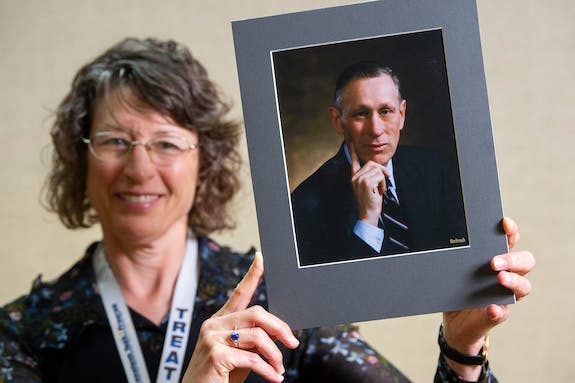
Two of his three children, George Davis and Susan Davis – now Susan Hipp – were so influenced by his stories and his career that they ended up joining the nuclear and engineering industries themselves. The younger George recounted the story of his most exciting take-your-kid-to-work day with his father. “I was in sixth or seventh grade, and dad was coming back from Vietnam. I had the opportunity at age 13 to fly to Hawaii and ride the Enterprise back to Alameda, California. That was quite a magnificent experience, to be on the ship and to sleep in my dad’s quarters. I had a lot of free rein on the ship. I got to watch the fighter jets take off and watch the Marines shoot guns.”
Susan lamented that as a female, she didn’t have that opportunity. But she does cherish memories of going in to work with her father on weekends when he was back from deployment. She and her brother would tag along with him wherever they were allowed, doing their homework while enjoying an inside look at his exciting job.
After high school, the younger George Davis joined the shipbuilding apprenticeship program in Newport News, Virginia, where the family was living at the time. He described the shipyard work as a good “launching point” for his career. He became an electrical apprentice, working with instrumentation and overhauls on submarine reactors.
“I was intrigued by all the different controls. I had a really good foreman that used to sit down with me on the job and explain to me what things did,” George said. “In my spare moments, I would read tech manuals. I was really fascinated with how the reactor worked.”
He worked in commercial nuclear energy for a few years, at the Dominion Surry Power Station in Virginia. Most of his job involved planning for reactor outages, which he didn’t enjoy as much as shipbuilding, so when Newport News Shipbuilding won a contract at NRF to work with prototype submarine reactors, he happily moved to Idaho. He loved his work, designing tooling, and training operators on Navy-owned reactors.
George also loved his work at the Advanced Test Reactor (ATR). During his five years there, he supported an effort to maximize reactor availability with a new workweek planning program. His last position at ATR was leading outage planning efforts for an upcoming ATR core internal change-out. He and his wife have since moved to Oak Ridge, Tennessee, where he works on environmental remediation at the national lab’s cleanup site, yet George still fondly remembers the many great people at ATR.
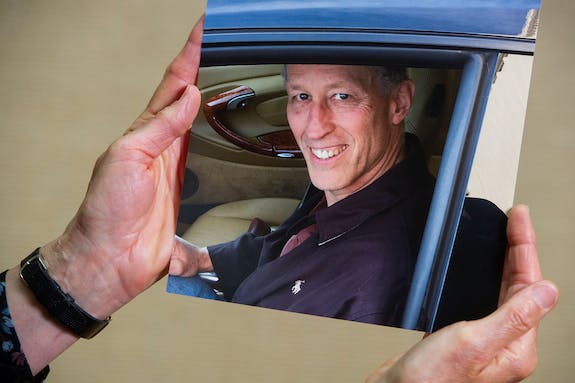
After Adm. Davis retired from the Navy, he worked for several years for the Boston Edison Company, providing oversight and safety review of its commercial nuclear plants.
After his stint in commercial nuclear power, he served on the Argonne Board of Governors, providing further oversight of their facilities. Now, he is enjoying a less busy retirement in South Carolina, although he often spends time helping children with disabilities at a rehabilitation center there.
Susan found herself drawn to the operations and performance improvement aspects of her father’s work. Her favorite role was in nuclear operations at Idaho National Laboratory. She loved her time managing older facilities at the Materials and Fuels Complex (MFC), where pioneering advancements in nuclear technology were made. Hipp has always appreciated being part of a team, trying to bring all the research and maintenance pieces of the puzzle together and interacting with communities across the lab to find a balance between operational rigor, sustainability and research outcomes. She is now working on a Management System Transformation effort to simplify and integrate the processes directing how work is performed.
Susan loves being able to contact her father when questions arise at work.
“Dad was always interested and could always offer insight into the technical questions, but I was really asking about operational matters,” she said. “What should operations look like, feel like? How do you motivate and inspire people to raise the standards?
“And for just a few pounds of high-quality Virginia peanuts a year, he was good for all sorts of great advice. That was part of the ‘Rickover Effect.’ What he had learned from his experience in the Navy and with Rickover’s standards benefited me a generation later.”
In Adm. Davis’ words, Susan was the “lowest cost client he ever had as a consultant!”
Susan’s husband, Tom Hipp, moved to Idaho from South Carolina, although he was initially drawn to the area for reasons outside of its thriving engineering industry. “I could say that I came out here for an intense interest in all things nuclear, but I really came out here to fly-fish, and electrical engineering was just a means of supporting that habit,” Tom said. “I thought I would stay out here for a couple of years, get tired of the winters, and then go back to South Carolina. That was 30-plus years ago.”
Tom spent two years at NRF before moving back to the South to work for the Department of Energy’s Savannah River Site. He soon decided he preferred life in Idaho and moved back, where he has worked as an electrical engineer at the Idaho Nuclear Technology and Engineering Center (INTEC), the ATR Complex and MFC.
The Davis/Hipp clan has always been a nuclear family. From an early age, Susan recalls having dinner table conversations about work ethics, nuclear power, and all sorts of other scientific and standards-related topics drawn from her father’s work. Whenever George is having a rough day, he puts things in perspective by remembering one particularly intense tale his father shared, about performing some challenging work in the primary loop of one of the Enterprise reactors.
Susan and George both credit their father with teaching them about the work ethic and making good judgments in their operations. Since Tom joined the family, he has loved hearing his father-in-law’s stories about his Navy experiences. For Adm. Davis’ part, he credits the lab with creating a positive, ethics- and safety-centered work culture.
“It’s been doubly enriching having so many family members in the same industry, because you can learn from each other more about what the lab is doing and how we’re doing it,” Susan said. “I learned some of the project management challenges by listening to George. It just broadens your perspective.”

